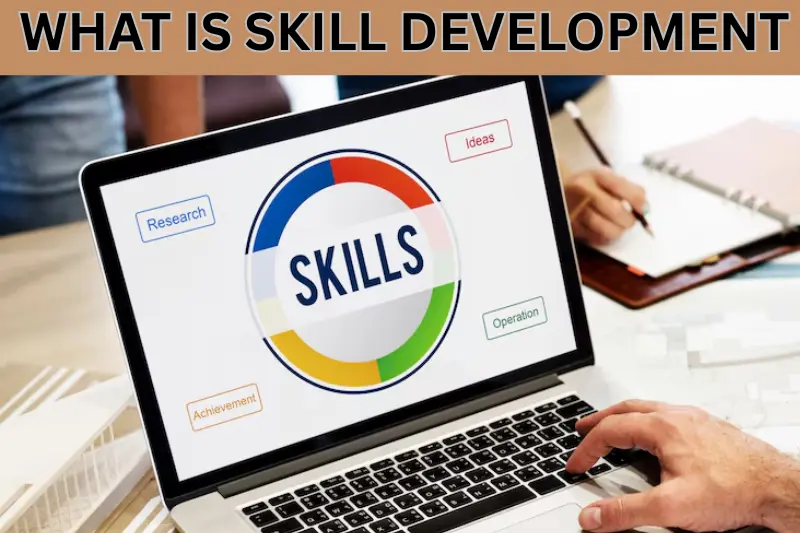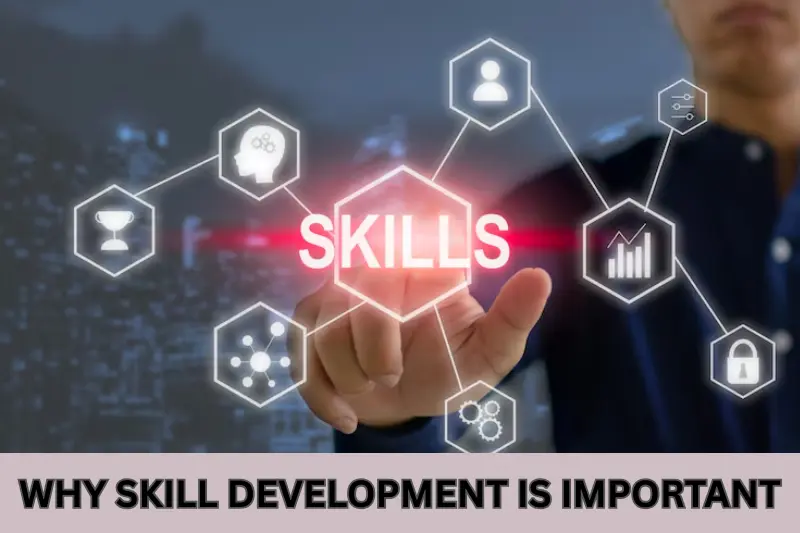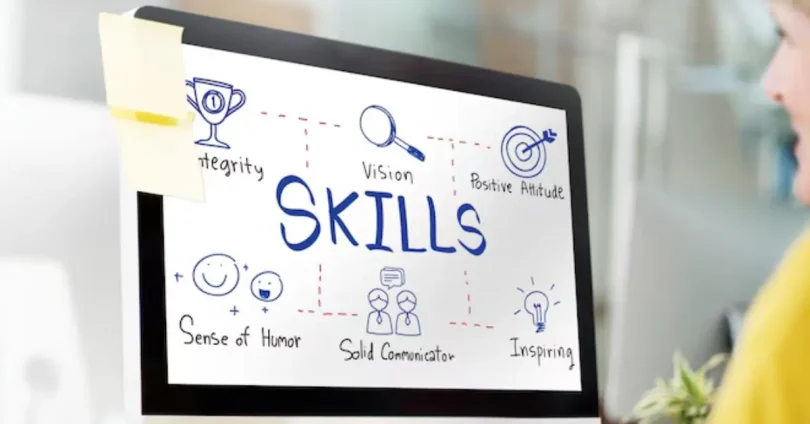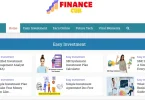Introduction:
In today’s fast-changing world, skill development is more important than ever. Whether you’re a student, a professional, or someone looking to grow personally, learning new skills can open many doors. It helps you stay updated, increase confidence, and become more successful in your personal and professional life. Skill development is not just about learning technical things—it also includes soft skills like communication, teamwork, and time management. This blog will guide you step by step on how to develop your skills and why it’s essential in today’s world.
What is Skill Development?

Skill Development means learning new abilities or improving the ones you already have. These skills can be technical (like computer programming or graphic design) or soft skills (like communication, leadership, or time management).
In simple words, skill development is the process of gaining the knowledge and experience you need to do something better. It helps you perform well in school, jobs, or daily life tasks. Whether it’s learning to use a new software or becoming a better public speaker, skill development plays a key role in personal and professional growth.
Types of Skills You Can Develop:
- Technical Skills – Example: Coding, data analysis, digital marketing.
- Soft Skills – Example: Communication, teamwork, problem-solving.
- Life Skills – Example: Time management, money handling, critical thinking.
- Job-specific Skills – Example: Sales techniques, customer service, project management.
Why is Skill Development Important?

Skill Development is essential for everyone—students, job seekers, professionals, and even entrepreneurs. It helps people grow, adapt, and succeed in different areas of life.
Increases Job Opportunities
- Employers look for skilled individuals.
- The more skills you have, the better chances you get for good jobs.
- Specialized skills can help you stand out from others.
Boosts Confidence and Performance
- Learning new skills helps you feel more confident.
- You can perform tasks more effectively and handle challenges better.
Supports Career Growth
- Skill development leads to promotions and higher salaries.
- It allows you to take on new roles and responsibilities.
Prepares You for the Future
- Technology and industries are always changing.
- Upgrading your skills keeps you relevant and ready for future trends.
Encourages Personal Growth
- It improves your decision-making and problem-solving abilities.
- Skills like communication and time management make daily life easier.
Helps Start or Grow a Business
- Learning skills like marketing, budgeting, or leadership helps in running a business.
- It also helps manage a team and improve customer service.
Step-by-Step Guide on Skill Development
Follow this easy step-by-step guide to start your skill development journey:
Step 1: Identify Your Goals
- Decide what you want to achieve.
- Ask yourself: “Why do I want to learn this skill?”
- Choose a skill that matches your career, interest, or personal growth.
Step 2: Choose the Right Skill
- Pick a skill that is in demand or useful for your goals.
- It can be a technical skill (like coding), a soft skill (like public speaking), or a life skill (like time management).
- Start with one skill at a time.
Step 3: Find Learning Resources
- Use online platforms like YouTube, Coursera, or Udemy.
- Read books, watch tutorials, or attend workshops.
- Learn from experts, mentors, or professionals in that field.
Step 4: Make a Learning Plan
- Set a daily or weekly routine to practice.
- Break your learning into small, achievable steps.
- Be consistent and stay focused.
Step 5: Practice Regularly
- Practice is the key to mastering any skill.
- Try real-world tasks and hands-on activities.
- Don’t be afraid to make mistakes—they help you learn better.
Step 6: Track Your Progress
- Keep a journal or checklist of what you’ve learned.
- Test yourself with small challenges or quizzes.
- Celebrate small wins to stay motivated.
Step 7: Get Feedback and Improve
- Ask for feedback from friends, teachers, or mentors.
- Learn from your mistakes and improve continuously.
- Stay open to learning new methods and ideas.
Step 8: Apply Your Skill in Real Life
- Use your skill in work, school, or daily life.
- Volunteer, take freelance projects, or join competitions.
- The more you apply it, the better you become.
Step 9: Keep Learning and Upgrading
- Skill development never ends.
- Stay updated with the latest trends and tools.
- Keep challenging yourself with advanced levels.
Advantages and Disadvantages of Skill Development
| ADVANTAGES | DISADVANTAGES |
| Improves job opportunities | Takes time and effort |
| Boosts personal confidence and self-growth | May require money for courses or training |
| Helps in career advancement and promotions | Not all skills are in demand everywhere |
| Makes you adaptable to changing industries | Learning too many skills at once can be confusing |
| Enhances productivity and problem-solving abilities | Can be overwhelming without proper guidance |
| Supports entrepreneurship and business success | Needs consistent practice and patience |
| Builds communication, leadership, and soft skills | Risk of outdated skills if not updated regularly |
Common FAQs on Skill Development
Conclusion:
Skill development is not just an option anymore—it’s a necessity in today’s fast-moving world. Whether you want to get a better job, grow in your current role, start your own business, or improve your daily life, building the right skills is the key to success. It helps you stay competitive, feel more confident, and be ready for new challenges.
The best part is that anyone can start developing skills at any age or stage of life. You don’t need a big budget or advanced tools—just a clear goal, the right resources, and a strong willingness to learn. From communication and leadership to digital and technical skills, every new skill you learn adds value to your life.
Yes, it takes time and effort, but the long-term benefits are worth it. Skill development opens up endless possibilities and gives you the freedom to shape your future the way you want.
Bonus Points on Skill Development
Start with Self-Assessment
- Know your strengths and weaknesses before choosing a skill to learn.
Set SMART Goals
- Make your goals Specific, Measurable, Achievable, Relevant, and Time-bound.
Use Free and Paid Resources Wisely
- Combine free tools (like YouTube) with paid courses for deeper learning when needed.
Join Online Communities or Forums
- Platforms like Reddit, LinkedIn, or Facebook groups can provide support, tips, and networking.
Take Notes and Review Regularly
- Writing things down improves memory and helps you track what you’ve learned.
Teach What You Learn
- Teaching others helps you understand the skill more deeply and boosts your confidence.
Stay Updated
- Skills and technologies change fast. Stay informed with the latest trends in your field.
Be Patient and Stay Positive
- Learning takes time. Don’t give up if progress feels slow—consistency brings results.
Mix Theory with Practice
- Reading and watching videos is good, but real growth comes through doing.
Create a Portfolio
- Showcasing your work (like coding projects, designs, writing samples) helps you stand out in the job market.







